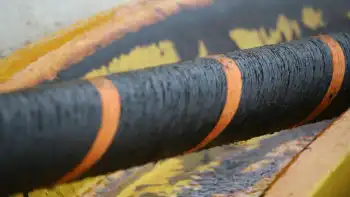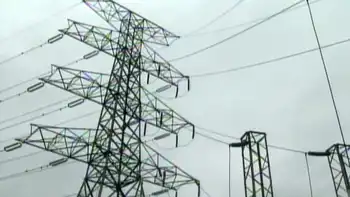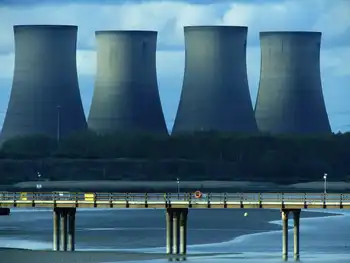Iran Acknowledges Buying Nuclear Components
By New York Times
High Voltage Maintenance Training Online
Our customized live online or in‑person group training can be delivered to your staff at your location.

- Live Online
- 12 hours Instructor-led
- Group Training Available
The statement, by the Foreign Ministry, came after the head of the Supreme National Security Council, Hassan Rohani, met in Vienna with the director general of the International Atomic Energy Agency, Mohamed ElBaradei. European and American diplomats say they believe that Dr. ElBaradei summarized the results of a report the I.A.E.A. is expected to release this week about Iran's nuclear program, including details that Iran withheld last fall when, under intense pressure from Europe and the United States, it revealed 18 years of secret nuclear activity.
"The Iranians are admitting to the dimensions of their program bit by bit, as they are confronted with individual pieces of evidence," said one senior American official involved in the investigations of the nuclear trading network set up by Abdul Qadeer Khan, the father of the Pakistani bomb. "Compare it to what the Libyans are doing. I'm convinced the Libyans are voluntarily showing us everything," the official said, referring to Libya's decision to dismantle all of its nuclear weapons program. "The Iranians are still stonewalling."
Reuters reported Sunday that the spokesman for Iran's Foreign Ministry, Hamid Reza Asefi, said that "we have bought some things from some dealers but we don't know what the source was or what country they came from." He insisted that every purchase had been reported to the I.A.E.A.
Iran's statements are significant because few American or European officials believe they yet understand how far the country's nuclear program has gotten, or how close the country may be to producing a nuclear weapon. Because Mr. Khan's network sold Libya equipment, full warhead designs, and the raw uranium gas that must be enriched to produce bomb fuel, American officials say they assume that Iran received the same package of goods.
On Friday, the Malaysian police released a report of its interrogations of B. S. A. Tahir, whom President Bush has identified as Dr. Khan's chief lieutenant. In the report, the police quoted Mr. Tahir as saying that Iran paid about $3 million for parts to manufacture centrifuges, which turn the uranium into highly enriched bomb fuel. The parts arrived in Iran in 1994 or 1995, officials said, about seven years after the first transactions between Iran and Pakistan. That shipment was something of a surprise to American officials, who until recently only had evidence of Pakistani shipments to Iran in the 1980's.
It now appears that the later shipments were part of an effort to sell Iran a more sophisticated type of centrifuge, called a P-2, which enriches uranium more efficiently than the first models sold to Tehran. The Iranians say they informed the I.A.E.A. last fall that they had worked experimentally with the P-2 design, but some agency officials say the information was only passed along after it became clear that Dr. Khan was being interrogated.
Iran's failure to declare all of its nuclear program is to be described, in muted terms, in the I.A.E.A.'s report this week. "It's a report that no one will like," said one senior European diplomat. "The Americans will not like the fact that the agency does not declare that the Iranians were making a weapon," a charge that President Bush leveled directly in a speech this month. "The Iranians will not like the fact that they are essentially accused of playing a shell game, only revealing the least they think they can get away with."
Iran promised European nations in the fall that it would suspend all of its activities to enrich uranium while the I.A.E.A. inspections of the country continued. But the Iranian government has defined "suspend" very literally, and it continues to manufacture parts for centrifuges that could ultimately improve the capacities of its enrichment facilities at Natanz.
American officials say they are following up on a number of leads in the report about the interrogations of Mr. Tahir, a Sri Lankan who lives mostly in Malaysia. But the Malaysian authorities said Saturday that Mr. Tahir committed no crime and is free to travel.











